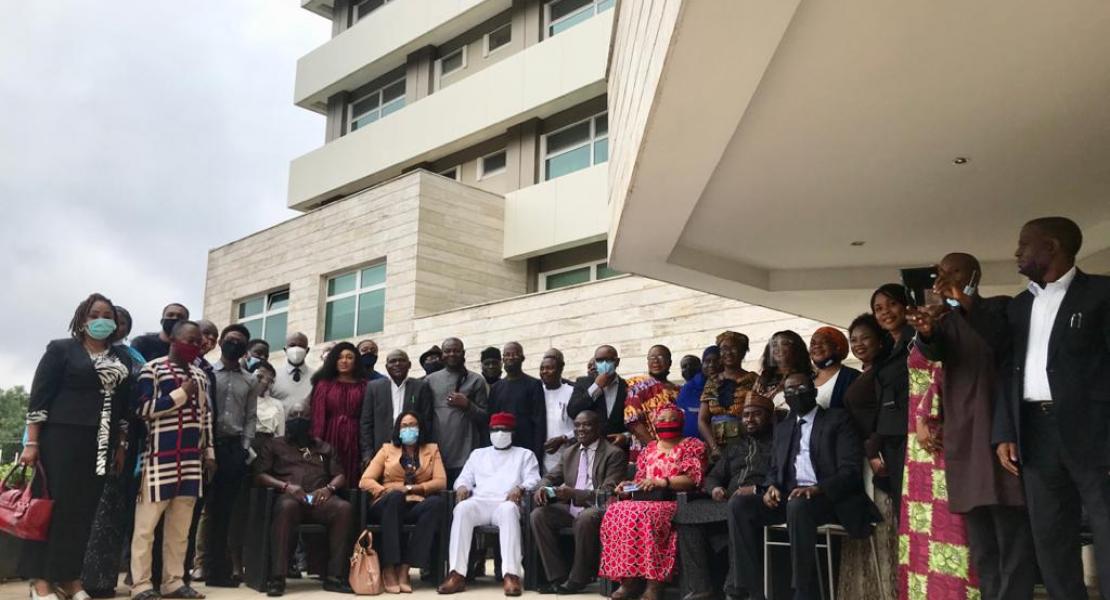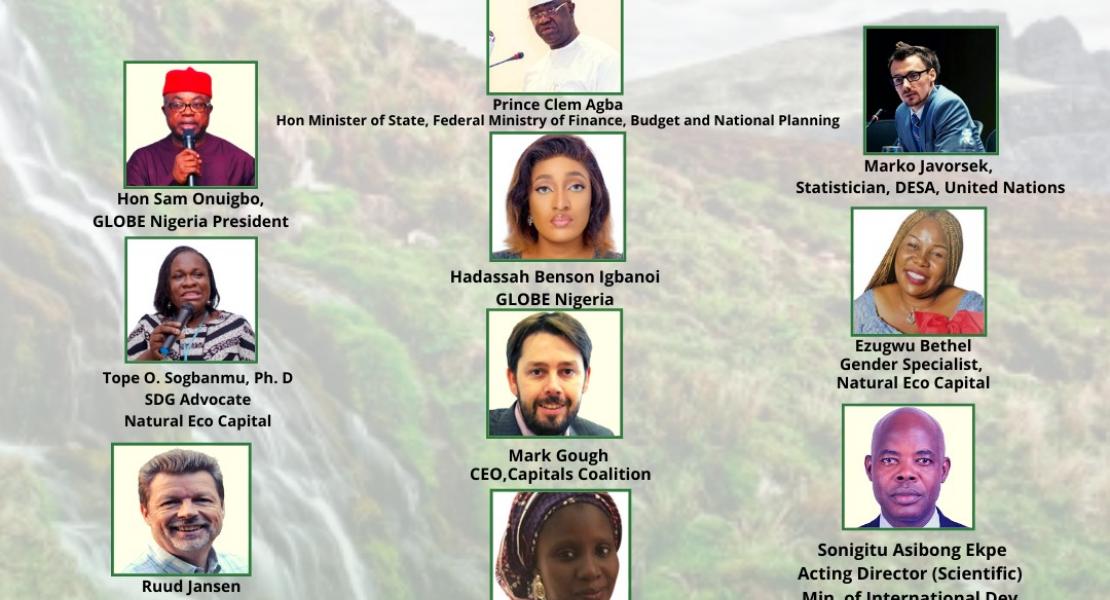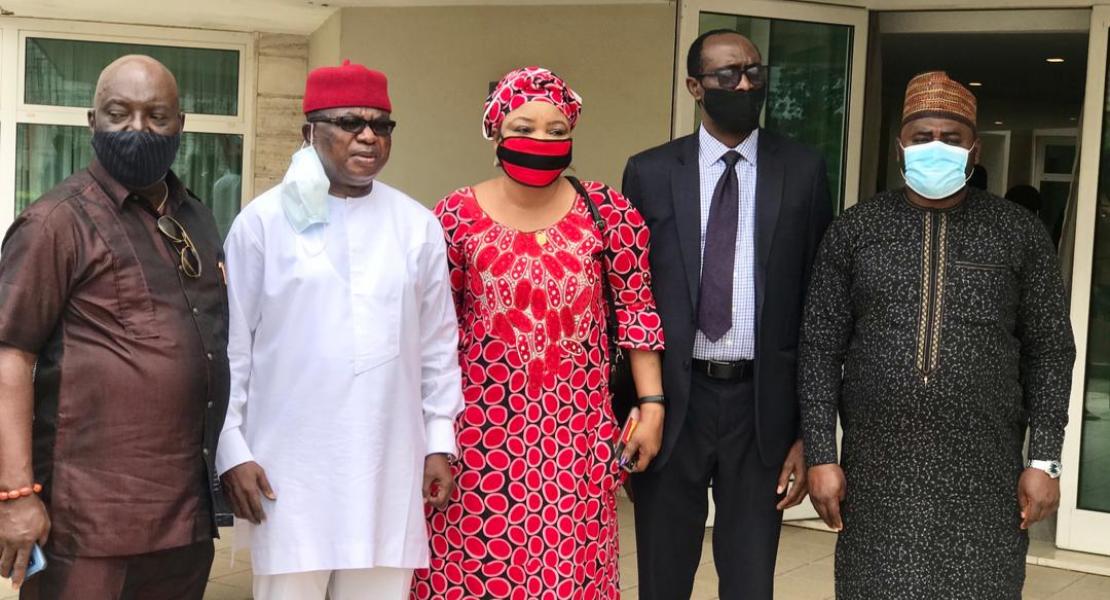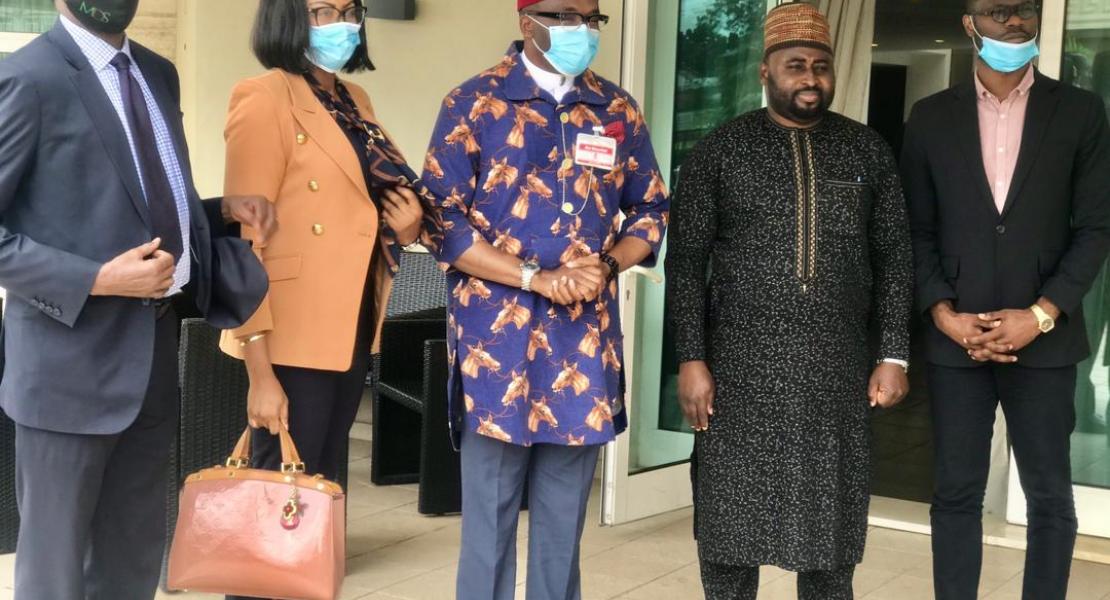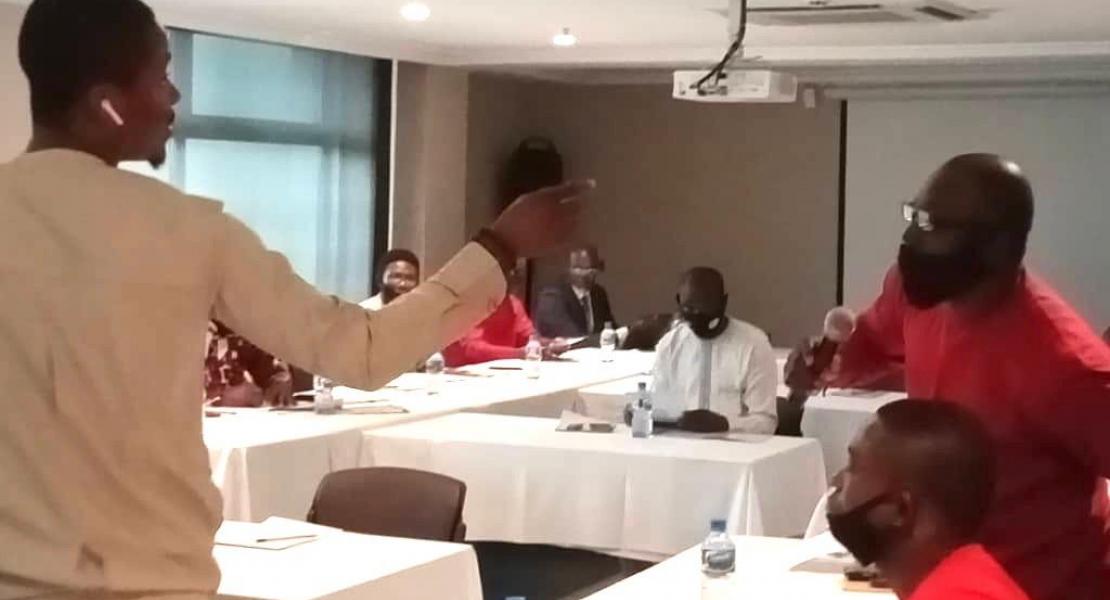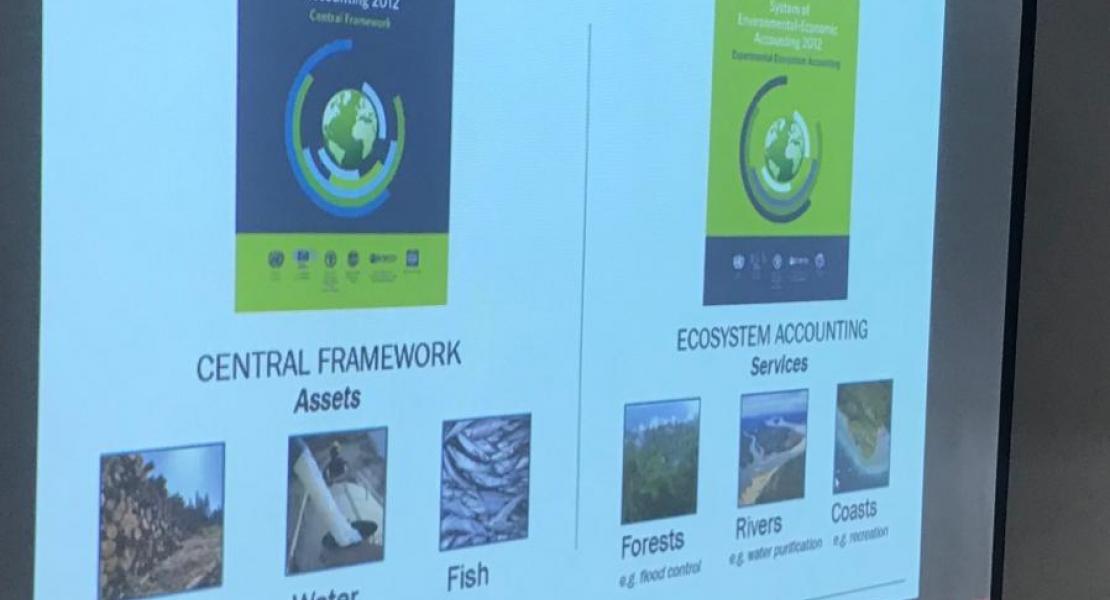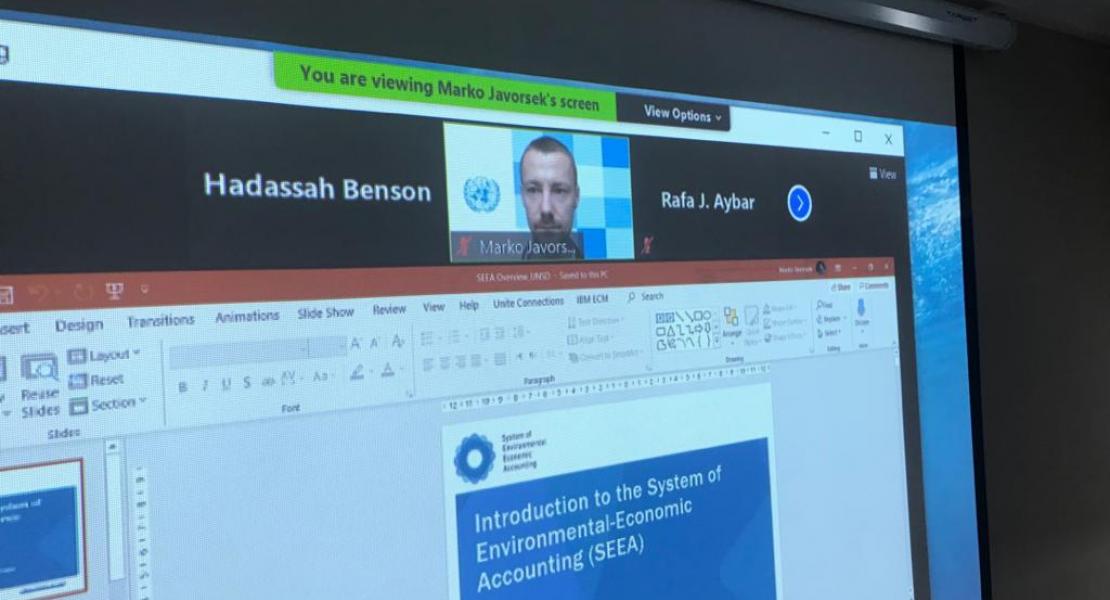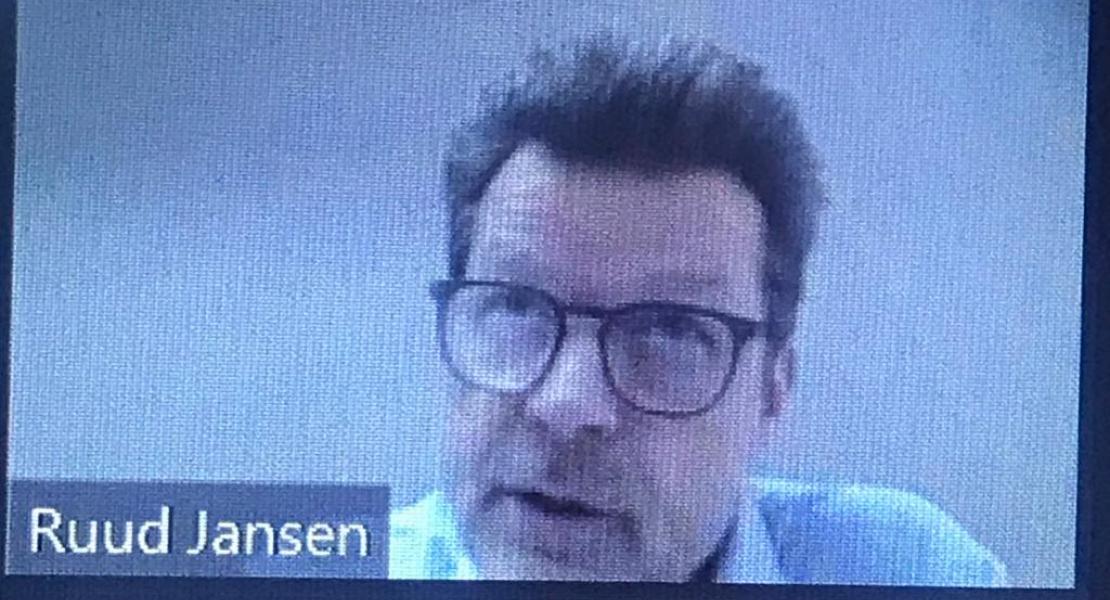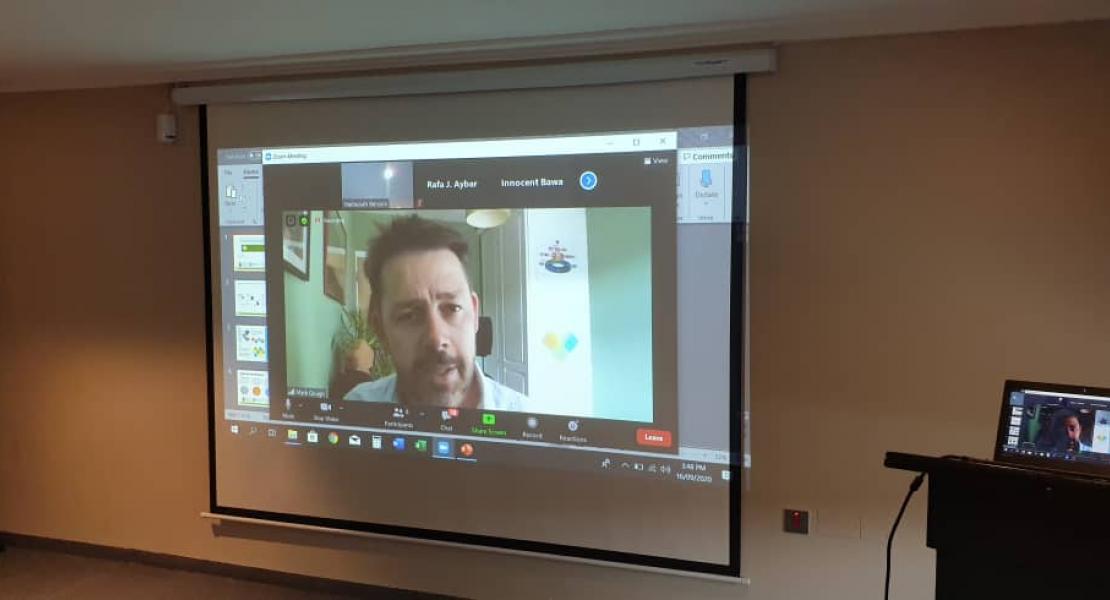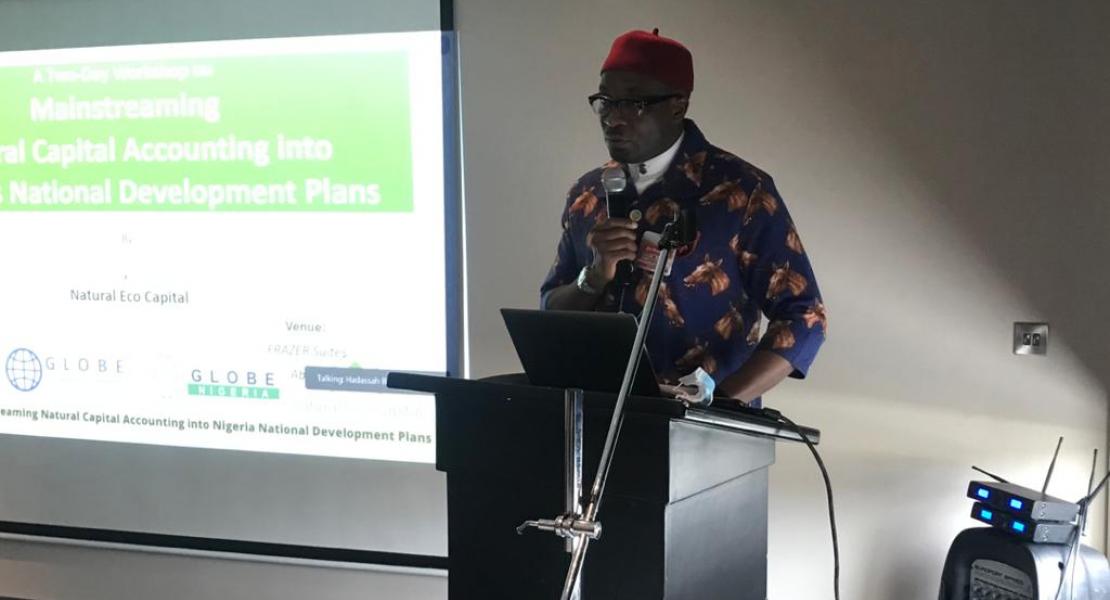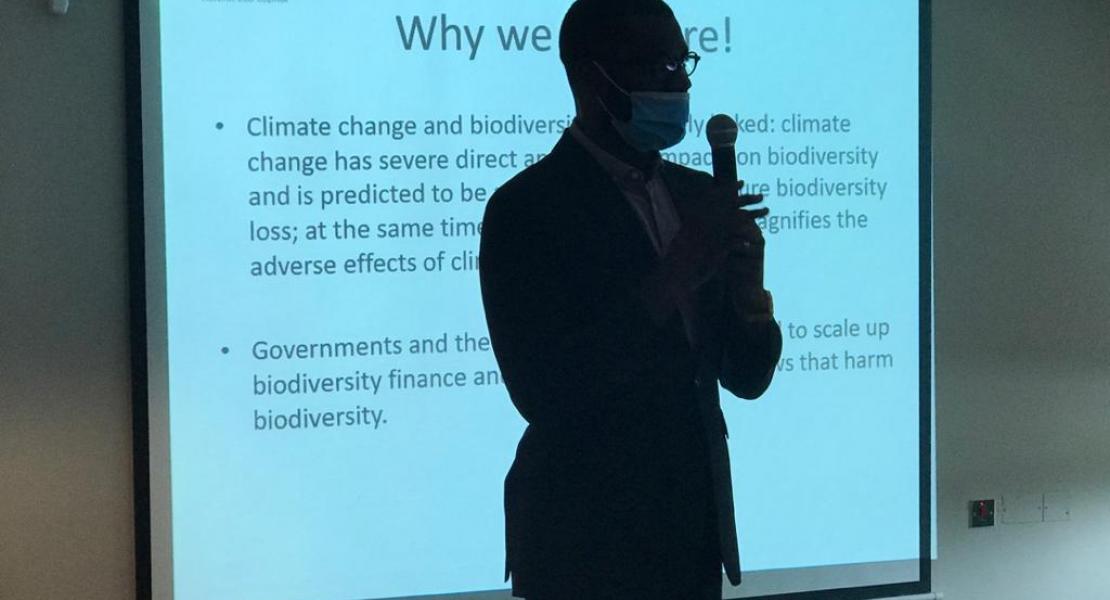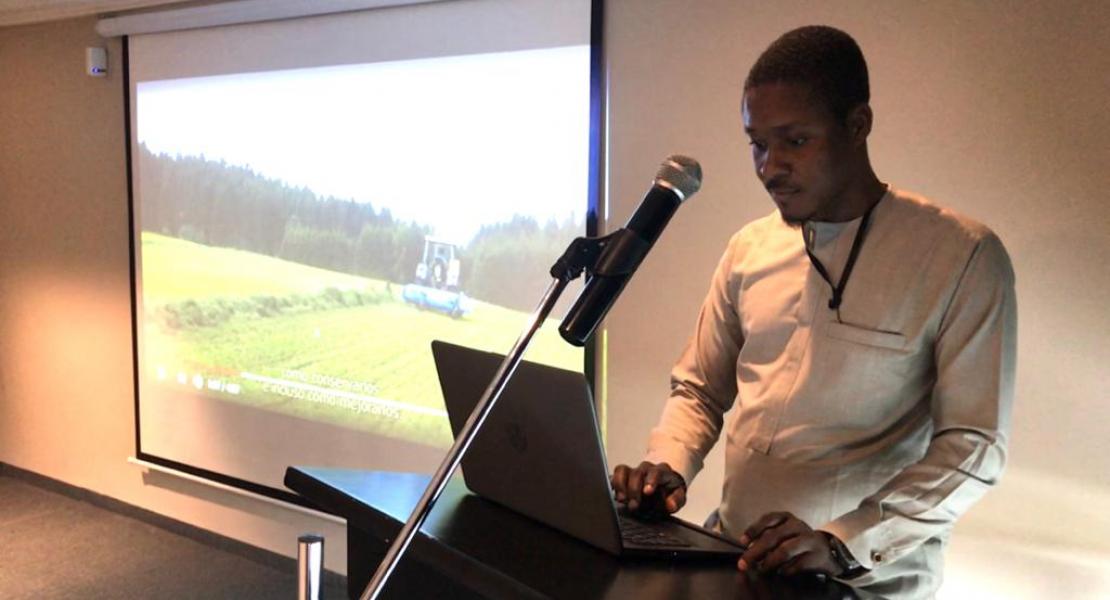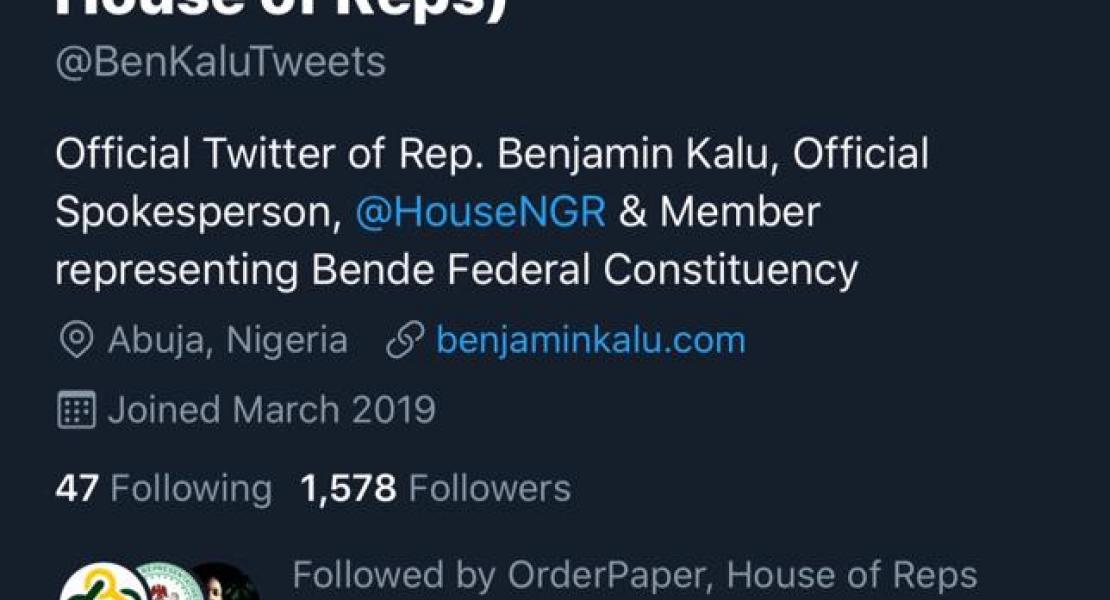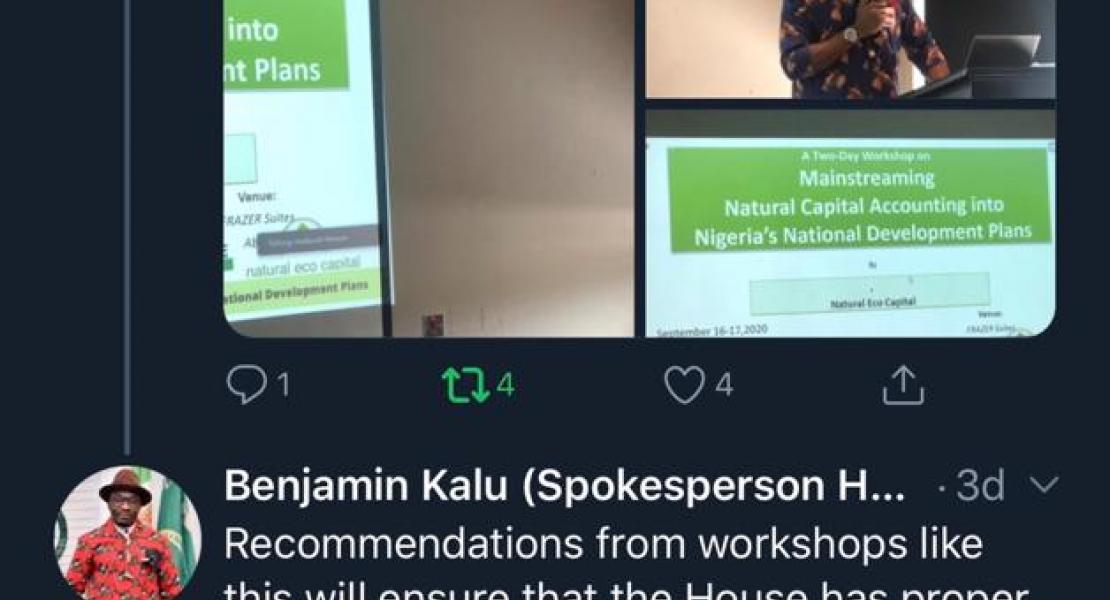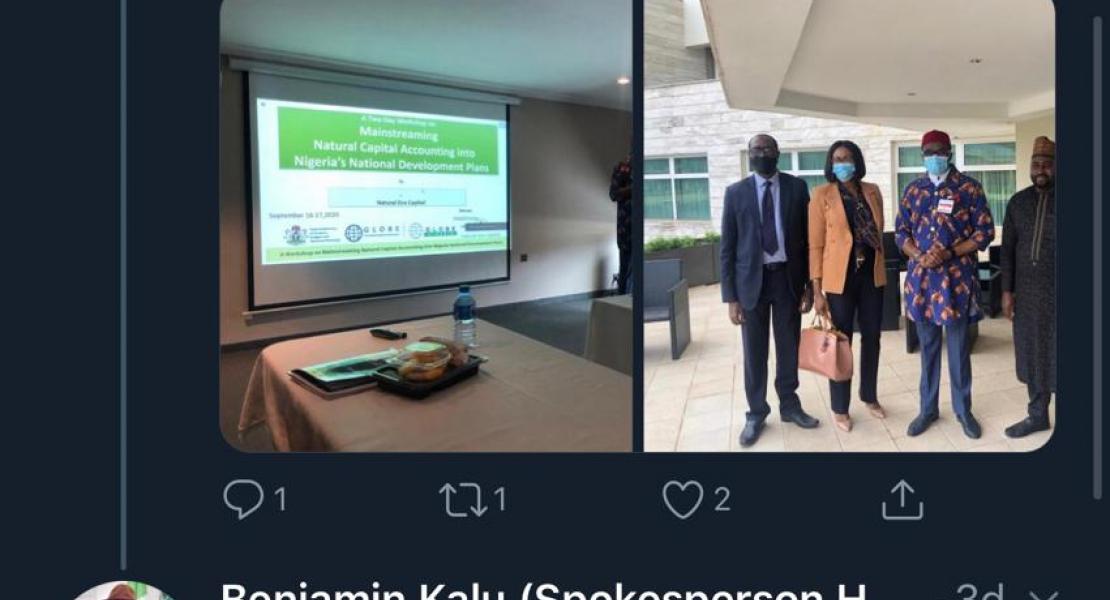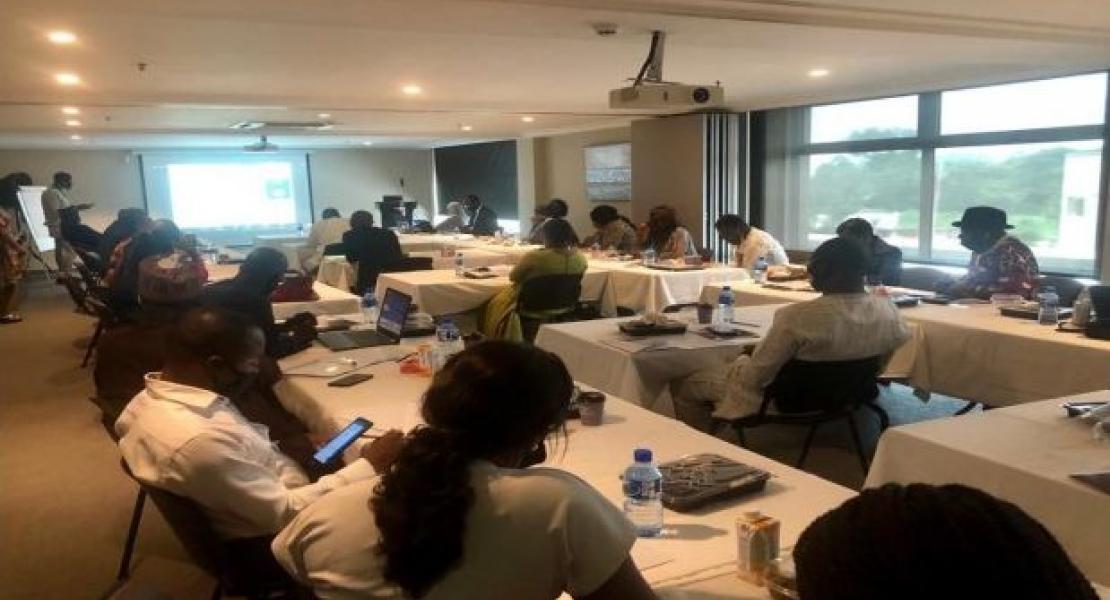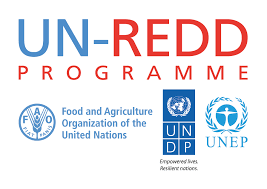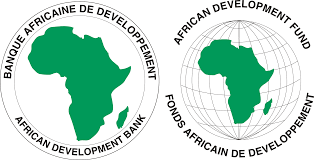Communiqué issued by Participants at the end of a 2-day Workshop on Mainstreaming Natural Capital Accounting Into Nigeria’s Sustainable National Development Plans, held at Fraser Suites, Central Business District, Abuja, Nigeria, on 16-17th of September, 2020:
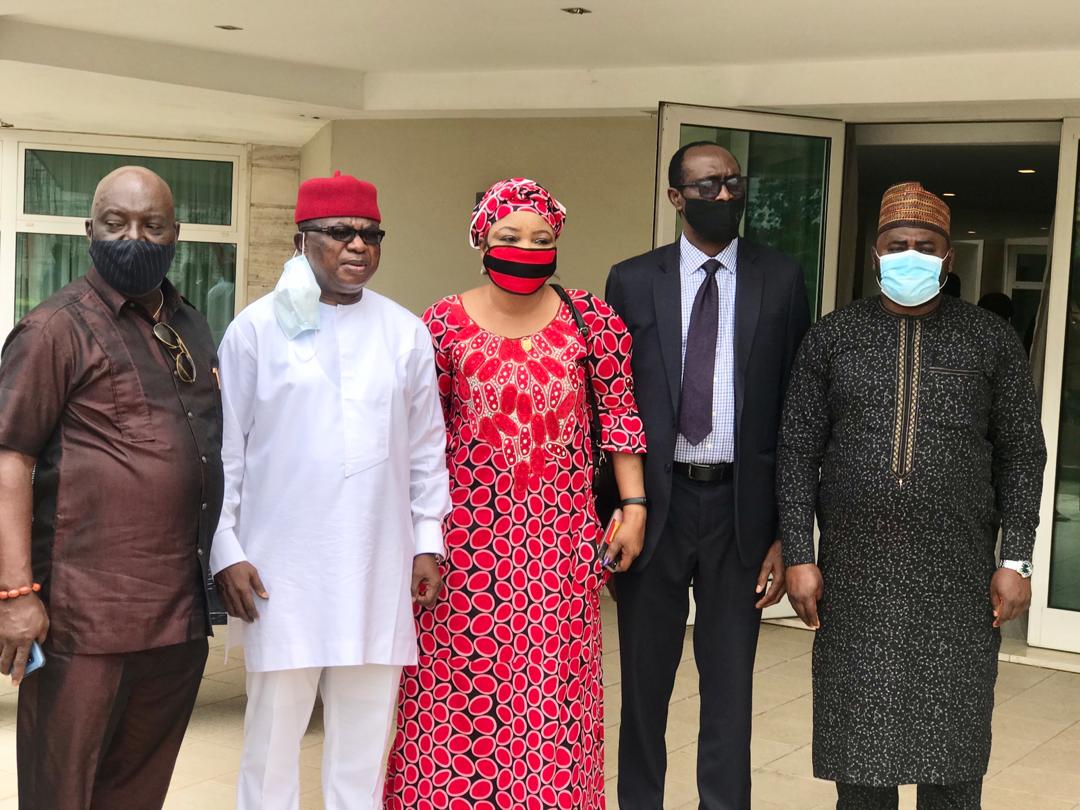
Considering the relevance of natural capital to the overall being of man and all aspects of the Nigerian economy, especially recognising that Nigeria’s quest for sustainable management of her natural resources (natural capital) requires the adoption of a governance approach that accounts for the impact of economic development on natural resources and environmental sustainability, and subsequently integration of such knowledge into policies and decision making.
In order to provide momentum for the development and implementation of a National Plan for Advancing Environmental Economic Accounting in Nigeria, and for the institutionalisation of the use of environmental economic accounting data for policy development and parliamentary scrutiny towards the delivery of the 2030 Sustainable Goals and Agenda 2063 the “African We Want”, while also understanding that the United Nations System of Environmental Economic Accounting (UN SEEA) uses the same accounting principles and structure of the System of National Accounts (SNA), which is the basis for Gross Domestic Products (GDP) as well as other macro-economic indicators including produced assets, and since several policy objectives can be achieved by good natural capital management, the forty-five delegates (virtual and physical) who participated at the Two-Day Workshop tagged “Mainstreaming Natural Capital Accounting into Nigeria’s National Development Plans”held in Abuja September 16-17, 2020 made the following recommendations:
- For more understanding and in order to provide frontline leadership adequate, undertake a high-level advocacy retreat with Management of the Federal Ministry of Finance, Budget and National Planning and National Legislators on Natural Capital Accounting (NCA) and its tools operationalized under the UN System of Environmental-Economic Accounting (SEEA).
- Raise awareness about the importance of environmental economic accounting as a tool for decision-makers amonsgt the Executive and other arms of the Government.
- Extend the Workshop programme to other MDAs as awareness and capacity strengthening activities.
- Establish a Community of Practice (COP) on Natural Capital Accounting in Nigeria, using the participants at the Two-Day Workshop as nucleus or ‘first-crops’.
- Include Natural Capital Accounting (NCA) into Nigeria’s Medium-Term National Development Plans (MTNDPs 2021-2025 & 2026-2030) and Nigeria Agenda 2050 which are currently under development.
- Expand and/or support the diagnostic study on the implementation of NCA as a Tool for sustainable National Development Plan which GLOBE Nigeria is already undertaking and then use this to redevelop a framework for Nigeria.
- Mainstream the NCA into the National Planning and Budgeting system as this will enable Nigeria to better understand how the environment underpins wealth and economic activity and to monitor environmental degradation and its costs.
- Sponsor a bi-partisan bill that stands to integrate NCA into national development plans and Agenda 2050
- Through NCA, create a consolidated database of Natural Capital assets as part of the National Accounts managed by National Bureau of Statistics (NBS).
- Compile a consistent, comparable and regularly produced national natural capital account based on the UN-SEEA framework with insights to identify and manage risks for achieving Nationally Determined Contributions (NDCs), Sustainable Development Goals (SDGs) and other policy targets at national, sub-national and Local government levels as well as private sector level.
- Update any existing maps on environmental assets and/or biodiversity ecosystems for Nigeria.
- Measure progress towards sustainable development and national growth; sustained and regular production of a priority set of environmental statistics, environmental-economic accounts, and the resulting indicators.
- Improve interagency co-operation in terms of information sharing and planning to enable better management of Natural Capital assets.
- Cause Nigeria to join the Gaborone Declaration for Sustainability in Africa (GDSA), a platform of like-minded countries established in 2012 and working actively on Natural Capital Accounting.
- Incorporate gender issues to increase efficiency and sustainability as this contributes to local biodiversity and ecosystem management.Develop a Biodiversity Finance Plan that mobilises new resources, delivers better on what is available, reallocate resources from where they harm to where they help, and acting today to reduce the need for future investments.
Rep. Sam Onuigbo FCIS, FNIM,
Member, House of Representatives, Nigeria.
Vice President (Africa) GLOBE International a.i.s.b.l. &
President, GLOBE Nigeria
On the News
- NNN News: Nigeria's Economic Diversification Demands Natural Capital Accounting Application - Ag. Director - https://nnn.ng/nigerias-economic-diversification-demands-natural-capital-accounting-application-ag-director
- Independent: Stakeholders Brainstorm On Integrating Natural Capital Into National Devt PlanStakeholders Brainstorm On Integrating Natural Capital Into National Devt Plan - https://www.independent.ng/stakeholders-brainstorm-on-integrating-natural-capital-into-national-devt-plan/
- Leadership: https://leadership.ng/2020/09/18/proper-accounting-of-natural-resources-will-generate-revenue-to-fg/
- News Diary Online: https://newsdiaryonline.com/nigerias-economic-diversification-demands-natural-capital-accounting-application-ag-director/
- Naija 247 News: https://naija247news.com/2020/09/16/nigerias-economic-diversification-demands-natural-capital-accounting-application-ag-director/#.X2eRaidxeUl

